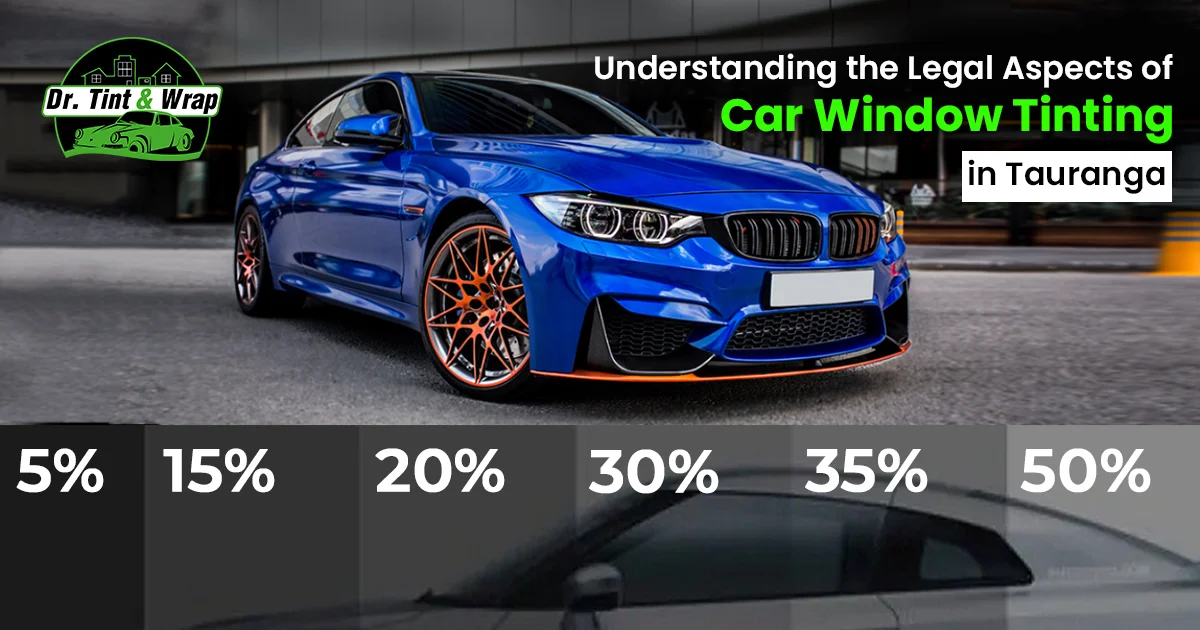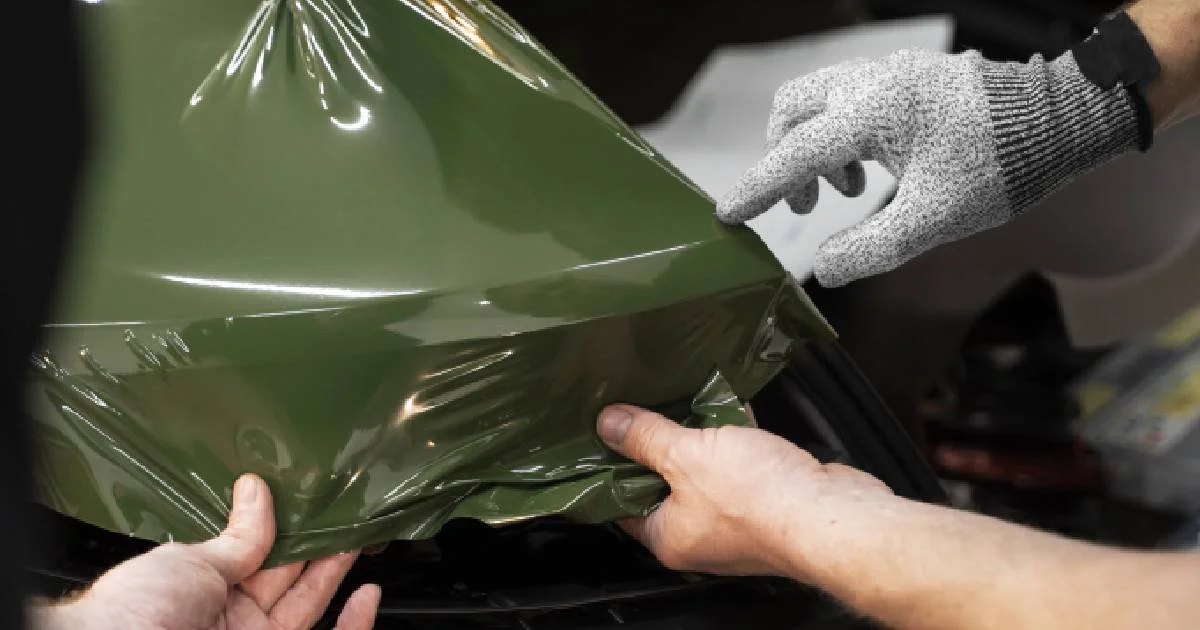
Which window tint is right for your home?
04 Oct 2024, By AdminWhen considering window tinting for your home, it’s important to understand the benefits of different types of tints and how they can improve your living space. Whether you're looking to enhance privacy, block harmful UV rays, or reduce energy bills, choosing the right tint can make a big difference. In this blog, we’ll guide you through the factors to consider when selecting window tinting, especially if you're looking for home window tinting in Auckland.
Why Consider Home Window Tinting?
Home window tinting offers a range of benefits, including:
- Energy Efficiency: By reducing heat gain in summer and retaining warmth in winter, window tinting can significantly lower energy bills.
- UV Protection: Quality window tints block up to 99% of harmful UV rays, which can fade furniture, carpets, and artwork.
- Privacy and Security: Tinting increases privacy without sacrificing natural light, and some options can even strengthen windows against breakage.
- Glare Reduction: Enjoy natural light without harsh glare, which can be a common issue in sunny environments like Auckland.
Types of Home Window Tinting
When it comes to choosing the right tint for your home, there are several options available, each offering unique benefits. Here are the most common types:
1. Solar Control Window Film
Solar control film is ideal for homes in areas with intense sunlight, such as Auckland. This type of tint reduces heat and glare while allowing natural light to enter. It’s perfect for rooms with large windows or those that face the sun for most of the day.
-
Best for: heat reduction, glare control, UV protection.
-
Popular in: living rooms, kitchens, and home offices.
2. Decorative Window Film
If you're looking to add style and privacy to certain areas of your home, decorative window films are a great choice. These films come in various designs, from frosted finishes to intricate patterns, allowing you to enhance the look of your windows while increasing privacy.
- Best for: privacy and aesthetics.
- Popular in: bathrooms, bedrooms, and front doors.
3. Security Window Film
For homeowners concerned about safety, security window film is a smart investment. It strengthens your windows, making them more resistant to breakage due to accidents or break-ins. The film holds glass shards together, minimizing injury risk and protecting against forced entry.
- Best for: safety and security.
- Popular in: ground-floor windows, and children’s rooms.
4. Insulating Window Film
If reducing energy consumption is a top priority, insulating window film is your best option. It helps regulate indoor temperatures by preventing heat from escaping in winter and keeping excess heat out in summer. This film is ideal for homes in regions like Auckland, where weather can vary.
- Best for: energy efficiency and temperature control.
- Popular in: All areas of the home.
Factors to Consider
Before choosing the right window tint for your home, here are some key factors to keep in mind:
- Climate: Auckland’s moderate but sunny climate calls for tints that offer both heat control and UV protection.
- Privacy Needs: For homes in busy neighborhoods, privacy films might be the top priority.
- Energy Savings: If your primary goal is to reduce heating and cooling costs, consider solar or insulating films.
- Aesthetics: Decorative films offer both function and design, making them a great option if you want to improve your home’s interior style.
Why Choose Home Window Tinting in Auckland?
If you live in Auckland, home window tinting is particularly beneficial due to the city’s mild but sometimes unpredictable climate. Solar control window tints can help keep your home cool in the summer months while insulating films help retain heat during the cooler months. Furthermore, Auckland’s UV index is often high, making UV-protective window tints essential for preserving your home’s interior.
Choosing the right window tint for your home involves assessing your specific needs, whether it's energy savings, privacy, or UV protection. The variety of films available means that you can find the perfect solution for every room in your home. If you’re considering home window tinting in Auckland, reach out to local professionals who can recommend and install the ideal tint to suit your lifestyle.
Choosing the right window tint for your home depends on a variety of factors, from the specific benefits you’re seeking to the location and climate of your home. Whether you want to reduce energy bills, protect your interiors, or enhance your home’s privacy, there is a tint to suit your needs.
If you're in Auckland, consider contacting a home window tinting Auckland professional to guide you through the options and ensure you choose the best film for your property. With the right window tint, you can enjoy a more comfortable, efficient, and secure home year-round.
This FAQ covers the essential aspects of home window tinting in Auckland, helping them make an informed decision before investing in this service.
1. What is home window tinting?
Home window tinting involves applying a thin, transparent or tinted film to the interior side of your home's windows. This film helps reduce heat, glare, and UV rays from the sun while providing additional privacy and energy efficiency.
2. Why should I tint my home windows?
Tinting your home windows can offer several benefits:
- Energy Efficiency: It reduces heat gain during summer and heat loss in winter, helping lower your energy bills.
- UV Protection: Window tinting blocks up to 99% of harmful UV rays, which can prevent fading of your furniture, flooring, and artwork.
- Glare Reduction: It reduces glare from sunlight, improving comfort in rooms with a lot of natural light.
- Privacy and Security: Tinted windows offer enhanced privacy by making it harder to see into your home from the outside while still allowing you to enjoy the view.
3. How long does window tinting last?
High-quality window films can last anywhere from 10 to 20 years, depending on the type of film, quality of installation, and exposure to sunlight. Most professional installations come with warranties covering up to 10 years or more.
4. Will window tinting make my home too dark?
No, window tints come in a range of shades and opacities. You can choose films that reduce heat and UV rays without significantly darkening your rooms. Clear or lightly tinted films are available for those who want minimal impact on natural light.
5. Can window tinting help reduce my energy bills?
Yes, window tinting reduces the amount of heat that enters your home in the summer, lowering your need for air conditioning. During winter, it also reduces heat loss through windows, making your home more energy efficient year-round.
Book Now

Understanding the Legal Aspects of Car Window Tinting in Tauranga
04 Oct 2024, By AdminCar window tinting has become a popular choice for vehicle owners in Tauranga, offering various benefits such as enhanced privacy, protection against harmful UV rays, and improved aesthetics. However, it is important to understand the legal aspects surrounding car window tinting to ensure compliance with local regulations. In this blog post, we will delve into the legal guidelines for car window tinting in Tauranga and provide you with valuable information to make informed decisions.
1. Familiarize Yourself with the Regulations
Before diving into car window tinting, it's crucial to be aware of the specific legal requirements in Tauranga. Each region may have its own set of regulations, so it's important to research and understand the guidelines specific to this area. Familiarize yourself with the allowable levels of tint darkness and reflectiveness to ensure compliance.
2. Light Transmission Laws
One of the key factors in car window tinting regulations is light transmission, often measured as a percentage. The lower the percentage, the darker the tint. In Tauranga, the allowable light transmission levels for car window tints may vary for different windows. For instance, the front windshield usually requires a higher light transmission compared to the rear windows. Understanding these variations is essential to avoid potential legal issues.
3. Visible Light Reflectance Limits
Apart from light transmission, Tauranga's regulations also impose limits on the amount of visible light reflectance that car window tints can have. Reflective tints can significantly impact the visibility of other drivers, potentially causing hazards on the road. Therefore, it's crucial to adhere to the specified limits to maintain road safety.
4. Certification and Compliance
When getting your car windows tinted in Tauranga, it's essential to choose a reputable service provider that uses tint films that comply with local regulations. Certified professionals will ensure that the tinting job meets the legal requirements, giving you peace of mind and minimizing the risk of penalties or fines.
5. Warranties and Documentation
To demonstrate compliance with the legal aspects of car window tinting, it's essential to keep the necessary documentation. This includes warranties for the tint films used and certificates of compliance provided by the service provider. These documents can serve as proof of compliance in case of inspections or any legal inquiries.
6. Regular Inspections and Maintenance
Even if your car window tints comply with the regulations at the installation time, it's important to maintain compliance in the long run. Regular inspections can help identify any issues such as peeling, bubbling, or fading of the tint film. If you notice any problems, promptly address them by consulting a professional to ensure that your car remains within legal limits.
Dr. Tint & Wrap excels in providing the finest car window tinting services in Tauranga, ensuring strict compliance with government laws for car window tinting in the area. Their expertise and attention to detail make them the top choice for anyone seeking professional car window tinting in Tauranga. Understanding the legal aspects of car window tinting in Tauranga is crucial to ensure compliance with local regulations and avoid potential penalties. By familiarizing yourself with the guidelines regarding light transmission, visible light reflectance, certification, and documentation, you can enjoy the benefits of window tinting while staying on the right side of the law. Remember to choose a reputable service provider, maintain proper documentation, and conduct regular inspections to ensure your car's window tinting remains in compliance with the law.

How Long Does Car Wrapping Last
04 Oct 2024, By AdminIntroduction
Car wrapping has become an increasingly popular method for vehicle customization, allowing car owners to express their style and protect their vehicles' original paint. However, like any automotive enhancement, car wrapping is not a permanent solution. In this blog, we'll delve into the factors that influence the longevity of car wrapping and answer the burning question: How long does car wrapping last?
Understanding Car Wrapping
Car wrapping involves applying a thin, adhesive vinyl film to the exterior of a vehicle. This vinyl can come in various colors, patterns, and finishes, providing car owners with a versatile and cost-effective alternative to traditional paint jobs. Car wrapping is known for its ability to protect a vehicle's paint from scratches, stone chips, and other environmental damage while allowing for easy removal or color changes.
Factors Influencing Car Wrap Longevity
- Quality of Materials: The longevity of a car wrap heavily depends on the quality of the materials used. High-quality vinyl films with UV-resistant properties tend to last longer and maintain their appearance over time. Cheaper, low-quality materials may deteriorate more quickly, leading to premature discoloration and peeling.
- Installation Skill: Proper installation is crucial for the durability of a car wrap. Professional installers with experience and skill ensure that the vinyl adheres uniformly, avoiding air bubbles, wrinkles, and edge lifting. Poor installation can significantly reduce the lifespan of the wrap.
- Environmental Factors: The environment in which a vehicle is driven and parked plays a vital role in how long a car wrap lasts. Harsh weather conditions, exposure to extreme temperatures, and prolonged sunlight exposure can accelerate the wear and tear of the vinyl. Regular exposure to elements like salt, bird droppings, and tree sap can also affect the wrap's longevity.
- Maintenance and Care: Proper maintenance and care are essential for maximizing the lifespan of a car wrap. Regular washing with mild soapy water, avoiding abrasive cleaners, and keeping the vehicle sheltered when possible can contribute to preserving the wrap's appearance.
- Intended Use: The intended use of the vehicle can impact the longevity of the car wrap. Vehicles used for daily commuting and exposed to heavy traffic may experience more wear than those used less frequently. Similarly, off-road or adventurous driving may increase the likelihood of damage to the wrap.
Signs of Aging and When to Replace
- Fading: One of the most common signs of an aging car wrap is color fading. This is often a result of prolonged exposure to sunlight.
- Peeling or Lifting: If the edges of the wrap start to lift or peel, it's an indication that the adhesive is losing its effectiveness, and the wrap may need replacement.
- Cracking or Wrinkling: Over time, the vinyl may develop cracks or wrinkles, affecting both the aesthetic appeal and the protective function of the wrap.
How long does car wrapping last?
Car wrapping longevity depends on various factors.
What signs indicate that a car wrap needs replacement?
Signs that a car wrap may need a replacement include:
- Fading: If the colors on the wrap start to fade or lose vibrancy, it may be time for a replacement.
- Peeling or Bubbling: The appearance of bubbles or peeling edges indicates that the adhesive is failing, and the wrap needs attention.
- Cracks or Tears: Physical damage, such as cracks or tears in the vinyl, compromises the effectiveness of the wrap and may necessitate replacement.
- Loss of Gloss: If the wrap loses its glossy finish and becomes dull, it may be a sign of wear and tear.
How much does it cost to replace a car wrap?
The cost of replacing a car wrap depends on various factors, including the size of the vehicle, the complexity of the wrap design, and the quality of materials used. On average, you can expect to pay a few thousand dollars for a full wrap replacement.

The Ultimate Guide to Car Wrapping: Importance & Tips
04 Oct 2024, By AdminIf you're a car enthusiast looking to give your ride a unique and personalized touch, car wrapping can be an excellent option. Car wrapping is the process of applying a vinyl film onto the surface of a vehicle, completely transforming its appearance. It allows you to change the color, add the finishing, and even add custom graphics or designs to your car, creating a true masterpiece that reflects your style and personality. In this blog post, we will explore the world of car wrapping and how it can elevate your car enthusiast game to the next level.
Importance of Car Wrapping?
Car wrapping has become increasingly popular among car enthusiasts for several compelling reasons,
Customization - Car wrapping allows you to completely transform the appearance of your vehicle. With a wide range of colors, textures, and finishes available, you can create a unique and personalized look that reflects your style and personality. It gives you the opportunity to customize your vehicle without the permanence of a traditional paint job, making it a flexible option for those who like to change up their vehicle's appearance.
Protection - Car wraps provide a layer of protection to your car's original paint. The vinyl material used in car wraps acts as a barrier against minor scratches, chips, and fading from UV rays, helping to preserve the condition of your car's paint and keeping it looking newer for longer. This can be particularly beneficial if you want to maintain your car's resale value or lease a vehicle and want to protect it during the lease period.
Versatility - Car wraps can be used for a variety of purposes beyond just changing the color of your car. They can be used for advertising, business branding, or promoting a cause or event. Car wraps provide a cost-effective and attention-grabbing way to market your business or create awareness for a cause, as they turn your vehicle into a moving billboard that can reach a wide audience.
Reversibility - Unlike traditional paint jobs, car wraps are not permanent and can be easily removed without damaging your car's original paint. This means you can change or remove the wrap whenever you want, allowing for flexibility and versatility in your vehicle's appearance. It also means that if you're planning to sell your car or return a leased vehicle, you can remove the wrap and restore it to its original condition.
Cost-effective - Car wrapping can be a more cost-effective option compared to a traditional paint job, especially for complex designs or multiple color changes. The cost of a car wrap depends on factors such as the size of the vehicle, the type of wrap material used, and the complexity of the design. However, compared to the cost of a full repaint, car wrapping can be more budget-friendly while still providing a high-quality, customizable finish.
Non-permanent - Car wraps are a non-permanent option, which means you can experiment with different looks and styles without committing to a permanent change to your car's appearance. This gives you the freedom to try out different colors, finishes, and designs, and easily revert to the original look if you wish.
Tips for Car Wrapping Enthusiasts
If you're considering car wrapping for your vehicle, here are some tips to keep in mind:
Choose a Professional Installer - Car wrapping is a complex process that requires skill and experience. It's important to choose a professional installer who has a proven track record of quality work. Look for reviews, ask for recommendations, and check their portfolio before making a decision.
Decide on the Type of Wrap - There are different types of car wraps available, including vinyl wraps, color change wraps, and clear wraps. Consider your budget, desired look, and durability requirements when choosing the type of wrap that's best for your car.
Prepare Your Car - Before applying the wrap, make sure your car's surface is clean and free of any dirt, debris, or wax. A clean surface will ensure proper adhesion of the wrap and result in a smooth finish. Also, remove any accessories or trim that may interfere with the wrapping process.
Choose High-Quality Materials - Opt for high-quality vinyl materials for your car wrap. High- quality materials are more durable, resistant to UV rays, and can withstand the elements better, ensuring your wrap will last longer and look better.
Consider Maintenance - Car wraps require regular maintenance to keep them looking their best. Follow the manufacturer's instructions for care and maintenance, which may include avoiding harsh chemicals, hand washing, and avoiding high-pressure car washes.
Be Mindful of Environmental Factors - Extreme temperatures, prolonged exposure to sunlight, and harsh weather conditions can affect the lifespan of your car wrap. Parking your car in shaded areas, using a car cover, and avoiding harsh environmental conditions can help prolong the lifespan of your car wrap.
Avoid DIY Wrapping - Car wrapping is a skilled trade that requires proper training and experience. Attempting to wrap your car yourself without the proper knowledge and tools can result in a subpar finish and damage to your car's paint. It's best to leave car wrapping to the professionals.
Plan for Removal - Car wraps are not permanent and will eventually need to be removed. Plan for the removal process and be prepared for the possibility of minor paint touch-ups after removal. It's important to follow the manufacturer's instructions for proper removal to avoid damaging your car's paint.
Get a Warranty - Look for a professional installer who offers a warranty on their workmanship and the materials used. A warranty can provide you with peace of mind and protection against any potential issues with your car wrap.
Dr. Tint & Wrap is a professional and one of the leading car wrapping service providers in New Zealand. At Dr. Tint & Wrap, we take total care of all the mentioned tips and strictly follow local laws and regulations regarding car wraps, including restrictions on colors, designs, and placement of wraps. Some areas may have specific rules and regulations that need to be followed to avoid any legal issues.
